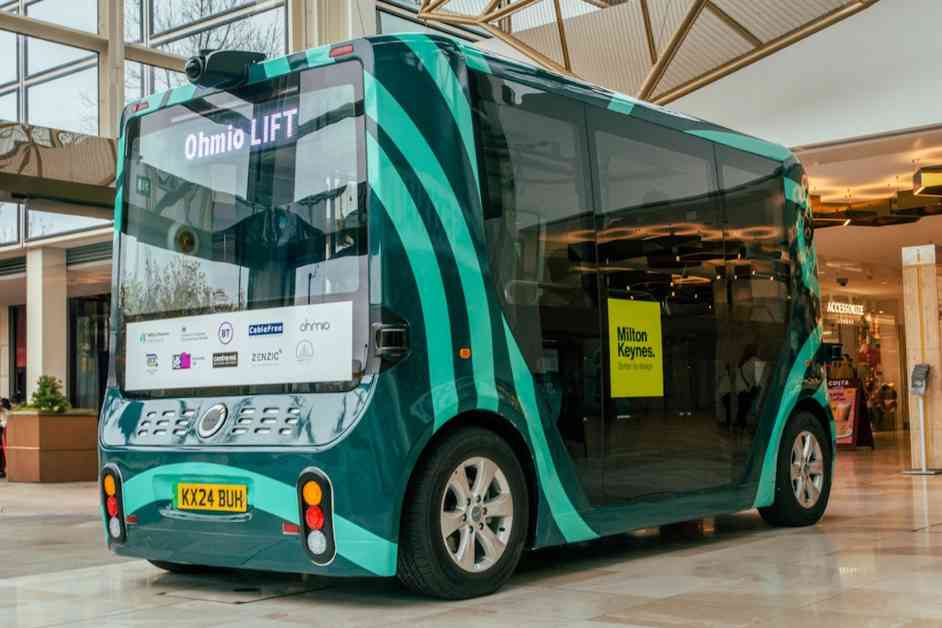Driverless buses are set to hit the roads in the UK, bringing a touch of futuristic technology to public transportation. These innovative StreetCAV shuttles will soon be seen cruising through the streets of Central Milton Keynes, sparking interest and curiosity among many eager to witness this cutting-edge advancement. The design of these buses is unique, resembling a pod-like structure with seating on both sides and a central door for easy entry and exit.
The absence of a driver’s seat in these autonomous vehicles blurs the line between the front and back of the bus, emphasizing their self-driving capabilities. Scheduled for trials in the city center in December, the StreetCAV shuttles are poised to revolutionize the way people commute. If successful, these buses will be operational for passengers by 2025, showcasing the UK’s commitment to advancing self-driving vehicle technology.
The government-supported Zenzic’s CAM Supply Chain UK program is driving this initiative forward, aiming to position the UK as a leader in autonomous transportation development. The Smart Mobility Consultancy (SMCCL) is at the forefront of this project, working tirelessly to bring this vision to life. The collaboration with partners like Milton Keynes City Council, BT, and ECS will facilitate the establishment of a city center control room to oversee the operation of these vehicles.
The StreetCAV project has garnered significant support and funding, indicating a strong belief in the potential of autonomous transportation to transform urban mobility. The focus on public safety and smart, green city initiatives underscores the commitment to creating a more connected and inclusive transportation network.
Milton Keynes is not the only city embracing the driverless future. Sunderland is set to pilot self-driving, zero-emission shuttles in early 2023, thanks to a substantial investment from government and industry sources. The collaboration between various stakeholders in Sunderland, including Aurrigo, Stagecoach, and Newcastle University, highlights the collective effort to leverage technology for the benefit of the community.
The potential of connected and automated vehicles (CAVs) to deliver social, industrial, and economic benefits is immense. The optimism surrounding this technology-driven future is evident in the commitment of local expertise and smart city infrastructure to propel these projects forward. The focus on leaving no one behind and embracing a technology-fueled future underscores the transformative impact of autonomous transportation on cities like Sunderland and beyond.













